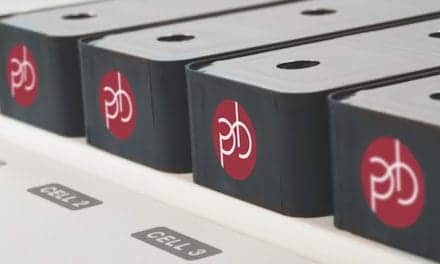XiFin has published the reimbursement rates for key pathology and molecular tests, giving labs and other health care enterprises key data for benchmarking.
By Chris Wolski
Managing reimbursement rates can be a time-consuming and tricky task for laboratory directors, physician managers, and hospital administrators. XiFin’s Payor Rate Transparency Monitor is a tool designed to give those involved in negotiating reimbursement rates insights and benchmarks to help determine the best rates for their organizations.
Each month XiFin focuses on a different set of reimbursement codes for pathology and molecular testing among others.
Rates from three of the country’s largest insurers—United Healthcare, Aetna, and Cigna—are used for the apples-to-apples benchmarking. The charts offer a range of rates from high to low and everywhere in between. The most common rates—not the highest—are represented with the largest circles within the circle graph for each payor.
The current focus is on immunohistochemistry and fetal testing; specifically CPT codes 88305, 88341, 88342, 88360, and 0753T for immunohistochemistry. For fetal genetic testing, the focus is on 81162, 81220, 81329, 81404, and 81420.
Pathology Reimbursement Rates
88305 Reimbursement Rates
CPT 88305 covers Level IV – surgical pathology gross and microscopic examination. The highest reimbursement rate for United Healthcare is $853.66 with the lowest just $0.03. The most common rate is $42.88. Aetna has a high rate of $734 and a low rate of $4.00 for this test with the most common rate coming in at $45.83. Cigna has a high of $800.02 for this test and a low of $0.70 with its most common rate $41.17.

88342 Reimbursement Rates
CPT 88342 covers the initial single antibody IHC stain performed on a specimen. United Healthcare posts both the highest and lowest reimbursement rates for this test at $1,020 and $0.04 respectively. However, its most common rate is $64.31. Aetna has a high rate of $950 and a low rate of $4.00. Its most common reimbursement rates are $67.14 and $102.41. Cigna has a high of $734.61 and a low of $0.78. Its most common rate is the lowest at $59.62.

88341 Reimbursement Rates
Following on 88342, CPT 88341 is for each additional IHC stain performed on the same specimen. United Healthcare has a high rate of $707.19 and a low rate of $0.02 with the most common rate being $56.51. Aetna has a high rate of $691.58 and a low rate of $4.00. Aetna’s chart demonstrates the large gaps between rates. The most common rate is $56.35 with the next most common rate $90.81. Cigna’s highest reimbursement rate for this CPT code is $649.86 and its lowest $0.71. The most common rate is $43.47.

88360 Reimbursement Rates
CPT code 88360 covers morphometric analysis, tumor IHC, quantitative or semiquantitative for each antibody. For this reimbursement rate, Cigna has the highest among the three insurers at $1,047.96 and a low of $1.10. However, its common rate is $59.76. United Healthcare has a high rate of $954.44 and a low of just $0.02. Its most common rate is $76.44. Again, Aetna has quite a range between its two most common rates: $75.35 and $120.67. Its high rate is $1,035.30 and its low $4.00.

0753T Reimbursement Rates
CPT 0753T covers digital pathology glass microscope slide digitization procedures. United Healthcare does not have reimbursement rates for this CPT code. Aetna has a high of $154 and a low of $11.40 with the most common rate being $95.00. Cigna has a high of $85.00 and a low of $70.00, which is also its most common rate.

Molecular Reimbursement Rates
81162 Reimbursement Rates
CPT 81162 covers full gene sequence testing for BRCA 1&2. United Healthcare has a high rate of $16,423.92 and a low of $1.82 with its most common rate $766.45. Aetna has a high of $19,124.90 and a low of $3.00. As with some of its pathology tests, it has a range of common rates with the most common at $1,459.90. Cigna also has a wide range of most common tests with the most common being $913.42 and the next most common $2,189.86. Its highest rate is $20,827.15 and its lowest rate $25.90.

81220 Reimbursement Rates
CPT 81220 is a fetal screening test for cystic fibrosis. United Healthcare has a high rate of $5,009.40 and a low rate of $0.56. Its most common reimbursement rates are $233.77 and $333.96 respectively. Aetna has a high rate of $5,560.43 and a low of $3.00. Its top common rates reveal a wide gap of $816.46 for the most common and $500.00 for the next most common. Cigna has a top rate of $5,145.21 and a low of $34.60. Its most common rates also reveal a wide gap with $250.68 being the most common and $667.92 being the next most common reimbursement rate.

81329 Reimbursement Rates
CPT 81329 covers carrier screening for spinal muscular atrophy (SMA). All three carriers have approximately the same high rates: $1,233.00 (United Healthcare), $1,253.00 (Aetna), and $1,219.96 (Cigna). United Healthcare has the lowest rate at $0.14, followed by Cigna at $1.42, and Aetna at $3.00. United Healthcare’s most common rate is $57.54. Aetna’s is $116.45. Cigna’s two most common rates are $61.70 and $164.40 respectively.

81404 Reimbursement Rates
CPT 81404 covers molecular pathology procedures level 5. United Healthcare’s high rate is. $2,473.47 and its low reimbursement rate is $0.27. Its most common rate is $115.43. Aetna’s high rate is $2,336.05 and its low rate is $3.00. Its most common rate is $175.00. Cigna’s highest rate is $3,138.00 and its lowest is $34.60. Its most common rate is $329.80.

81420 Reimbursement Rates
CPT 81420 covers screening for fetal chromosomal abnormalities using maternal blood. United Healthcare has a high rate of $6,831.45 and a low rate of $0.76. Its most common rate is $318.80. Aetna and Cigna’s high reimbursement rates are nearly identical with Aetna’s just a bit higher at $7,054.44 and Cigna’s at $7,015.59. Aetna’s low rate is $3.00, and its most common rate is $500.00. Cigna’s low rate is $34.60, and its most common rate is $910.86.

For More Information
For more detailed analysis of the reimbursement rates for these pathology and molecular tests, visit the XiFin Payor Rate Transparency Monitor
Chris Wolski is chief editor of CLP.





